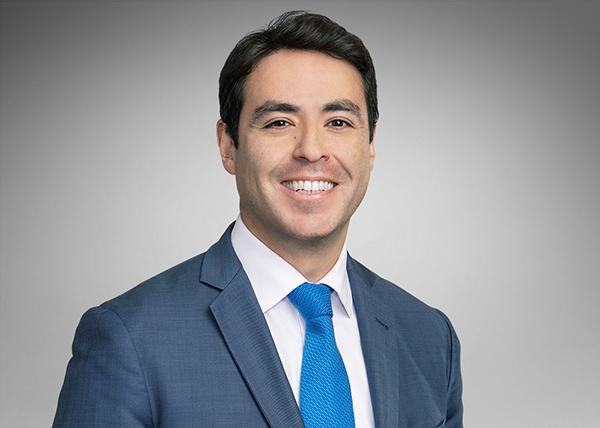I. Executive Summary
On July 2, 2025, the United States Tax Court issued a reviewed opinion in JM Assets, LP v. Commissioner, 165 T.C. No. 1, striking down a Treasury regulation that purported to extend the time for the IRS to issue a final partnership adjustment (“FPA”) under the Bipartisan Budget Act of 2015 (“BBA”) procedures. The court held that Treas. Reg. § 301.6235-1(b)(2)(i)(A)—which addresses the IRS’s deadline for issuing an FPA—conflicts with the plain language of IRC § 6235(a)(2) and is therefore invalid.
This is a significant decision for partnerships subject to the BBA regime. The case reinforces statutory limits on the IRS’s ability to extend the adjustment period and provides clarity on when the statute of limitations begins to run following a partnership’s submission of a modification request. Partnerships should take note of this case when planning their responses to notices of proposed partnership adjustments (“NOPPAs”) and modification requests.
More broadly, the decision reinforces the Tax Court’s willingness to invalidate regulations that might be viewed as conflicting with an underlying statute, even when those regulations are procedural rather than substantive—an area where the IRS might have been (but was not) afforded greater deference.
II. Background on the BBA
The BBA overhauled the rules governing IRS audits of partnerships for tax years beginning after December 31, 2017. Under the BBA, the IRS generally audits a partnership’s return in a centralized partnership-level proceeding, instead of conducting an audit of each partner separately. Before making an adjustment, the IRS must inform the partnership of the adjustments it proposes to make by issuing a NOPPA. Once the IRS has issued the NOPPA and calculated the partnership’s imputed underpayment of tax, the partnership has 270 days (the 270-day modification period) in which it may request a modification of the proposed imputed underpayment. Roughly speaking, the imputed underpayment is a 37% tax on the adjustments, but under the modification procedures, the imputed underpayment may be reduced to reflect certain characteristics of the partners. For example, a 21% tax rate may be applied with respect to the portion of the adjustment that is attributable to partners that are C corporations. The IRS determines whether to grant the modification request, and then it makes the adjustment and concludes the audit by issuing an FPA to the partnership.
IRC § 6235 generally requires the IRS to issue an FPA within three years of when the return was filed, or within six years of the return filing date when there is a substantial omission of income. However, when a partnership submits a modification request, the deadline is extended until the end of a 270-day period (the 270-day FPA period) that is different from the 270-day modification period, so that the IRS has time to consider the modification request. The question raised by JM Assets is when this 270-day FPA period begins.
IRC § 6235(a)(2) provides that the 270-day FPA period begins on “the date on which everything required to be submitted [under a modification request] is so submitted.” In contrast, Treas. Reg. § 301.6235-1(b)(2)(i)(A) provides that the 270-day FPA period generally begins on the last day of the 270-day modification period. In JM Assets, the taxpayer challenged that regulation, arguing that the date on which “everything . . . is so submitted” is the date on which the taxpayer made its last required submission under the modification procedures, not the date on which the 270-day modification period expired.
III. Facts of the Case
JM Assets reported several real property dispositions as installment sales on its 2018 U.S. federal income tax return. The IRS examined the return and issued a NOPPA on June 9, 2022, increasing JM Assets’ Section 1231 gain and proposing an imputed underpayment of approximately $2 million.
On February 14, 2023—250 days after the NOPPA was issued—JM Assets submitted a modification request. It did not provide any additional materials after that date, nor did the IRS request any supplemental information. On June 5, 2023, the IRS issued a letter approving the modification in full. Then, on December 1, 2023—289 days after the last (and only) submission that JM Assets had made pursuant to the modification procedures, but only 270 days after the end of JM Assets’ 270-day modification period—the IRS issued an FPA reflecting the adjustments proposed in the NOPPA.
JM Assets challenged the FPA as untimely, arguing that it was issued outside the 270-day FPA period. In response, the IRS defended the FPA’s timeliness based on Treas. Reg. § 301.6235-1(b)(2)(i)(A), which, as noted above, states that the 270-day period for issuing an FPA begins not when the partnership submits all materials required under the modification procedures, but when the 270-day modification period closes. Alternatively, the IRS sought to invoke the six-year limitations period applicable to substantial omissions of gross income.
IV. Court’s Holding and Reasoning
The Tax Court rejected the IRS’s position and invalidated Treas. Reg. § 301.6235-1(b)(2)(i)(A) as inconsistent with the unambiguous statutory language of IRC § 6235(a)(2). The court emphasized that the statute plainly provides that the 270-day FPA period begins upon actual submission of “everything required” for the modification, not at the end of the full 270-day modification period.
The court’s key findings and rulings include the following:
- Statutory vs. Regulatory Text: The court found that Treasury’s regulation impermissibly altered the statutory deadline by deferring the start of the 270-day clock. Following the Supreme Court’s decision in Loper Bright Enterprises v. Raimondo, 144 S. Ct. 2244 (2024), the court emphasized that regulatory interpretations cannot override clear statutory language.
- Regulatory Overreach: Citing Varian Medical Systems, Inc. v. Commissioner, 163 T.C. 76 (2024), the court reaffirmed that Treasury regulations that conflict with the statute are invalid even where there has been a broad delegation of authority to Treasury by Congress.
- Rejection of Substantial Omission Argument: The court also rejected the IRS’s alternative claim—that the six-year statute applied due to a substantial omission of gross income. The court held that JM Assets adequately disclosed the transactions at issue via Forms 6252 attached to its return. The court applied the Supreme Court’s “clue rule” announced in Colony, Inc. v. Commissioner, 357 U.S. 28 (1958), and reaffirmed in United States v. Home Concrete & Supply, LLC, 566 U.S. 478 (2012), finding that there was no omission within the meaning of IRC §6501(e) because the return disclosure apprised (“clued”) the Commissioner as to the relevant item.
Accordingly, the court granted JM Assets’ motion for summary judgment and dismissed the FPA as untimely.
V. Key Takeaways
- Statutory Limits Control: This decision reinforces the rule that the IRS must adhere to the statutory framework in IRC §6235(a), particularly when calculating the time to issue an FPA following a modification request.
- Challenge to BBA Regulations: JM Assets is one of the first significant challenges to BBA regulations and may open the door to further scrutiny of Treasury’s rulemaking under the centralized partnership audit regime.
- Importance of Adequate Disclosure: The court’s rejection of the substantial omission argument serves as a reminder that full and accurate disclosures on return attachments can prevent the IRS from extending the limitations period.
- Audit Strategy Considerations: Partnerships facing BBA examinations should carefully track deadlines tied to NOPPAs and modification requests, and consider proactively documenting the completeness of their submissions. Taxpayers who have already requested a modification should evaluate whether it is too late for the IRS to issue an FPA and make any adjustments.
- Regulatory Challenges Generally: JM Assets further emphasizes the Tax Court’s willingness to consider challenges to both procedural and substantive regulations. Taxpayers should consider raising such challenges when appropriate.
If you have any questions concerning the material discussed in this client alert, please contact any of the members of our Tax practice.
Back
Back







